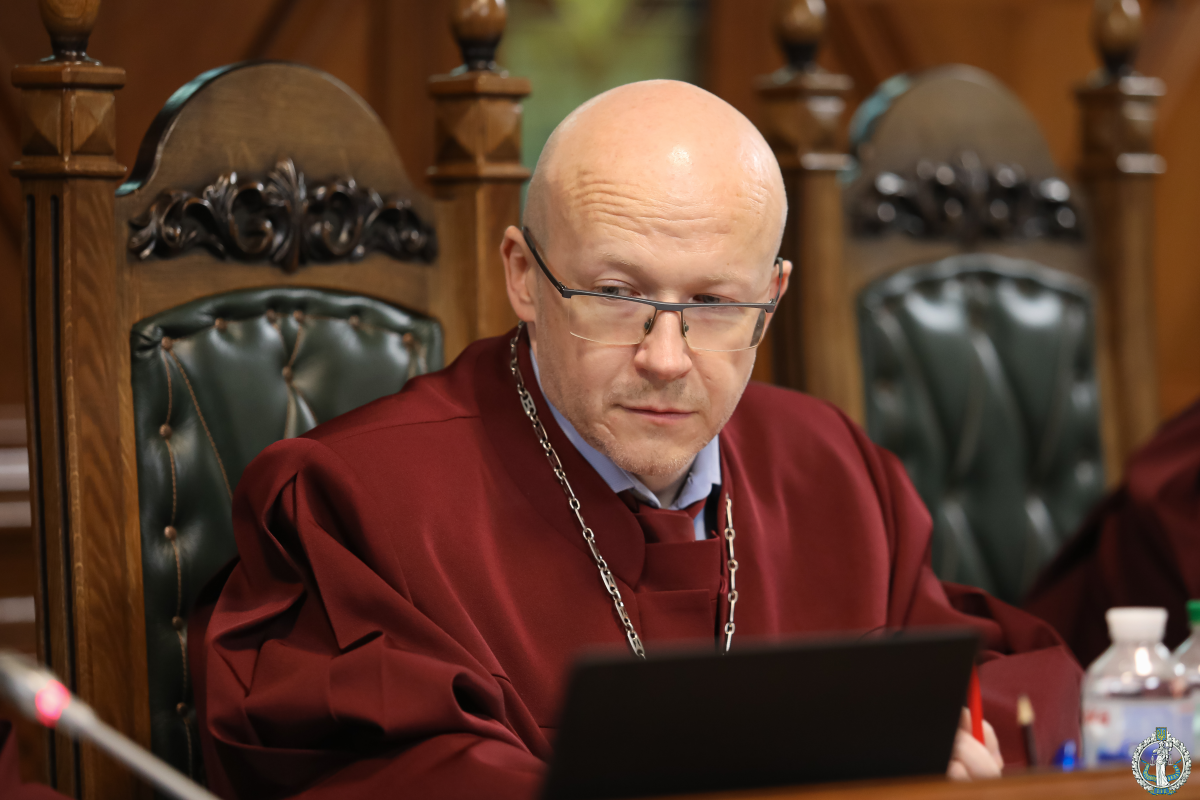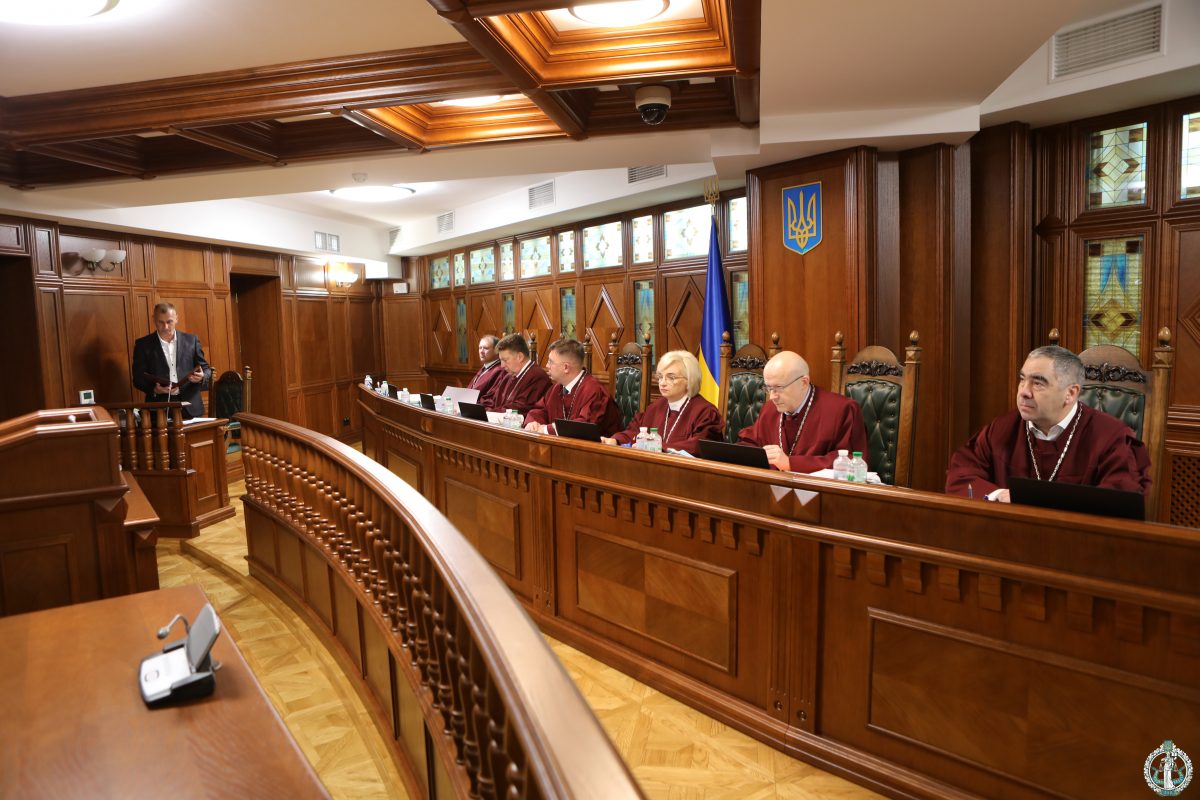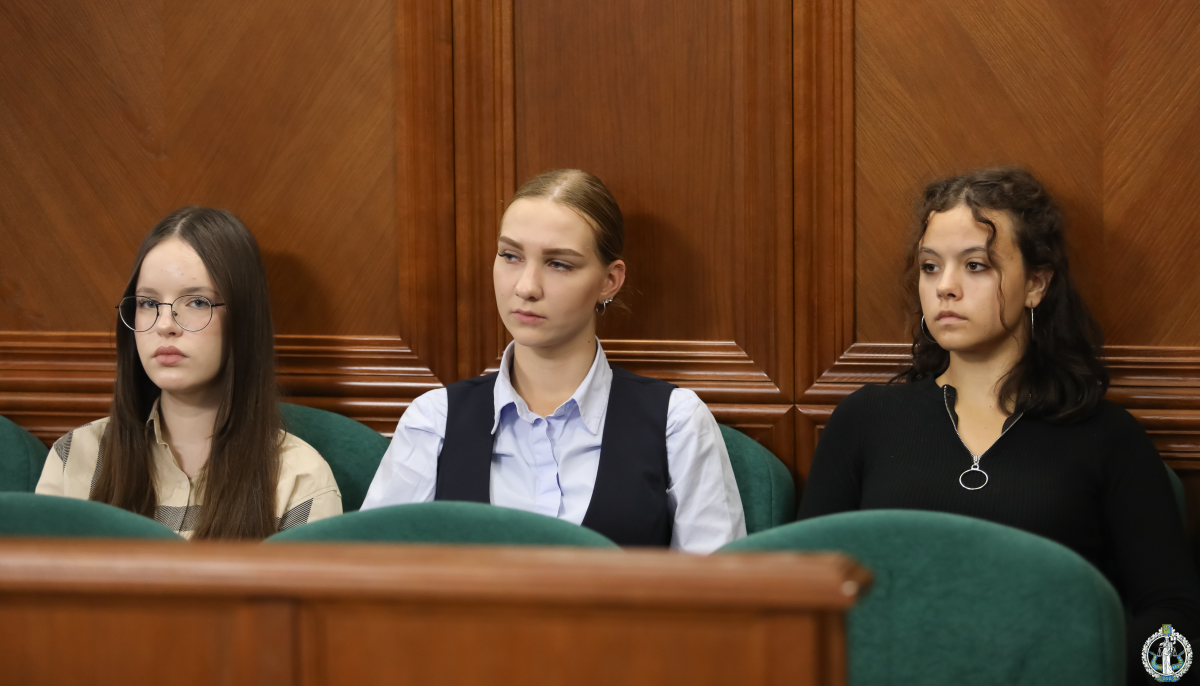Deliberation of the Constitutional Complaint of Volodymyr Lopushanskyi: The Court Will Review the Constitutionality of Certain Provisions of the Law of Ukraine “On Court Fee”
25/09/2025
On 24 September 2025, the Second Senate, in the public part of a plenary session held in written proceedings, has deliberated the case upon the constitutional complaint of Volodymyr Lopushanskyi regarding the constitutionality of the Article 4.2.1.7, 4.2.3.5, and 4.2.5 of the Law of Ukraine “On Court Fee”.
During the plenary session, Judge-Rapporteur in the case, Oleksandr Vodiannikov, presented the content of the constitutional complaint, the subject of constitutional review, and the circumstances of the case.
He noted that the complainant, Volodymyr Lopushanskyi (hereinafter, the “Applicant”), appealed to the Constitutional Court of Ukraine to verify the compliance of the Article 4.2.1.7, 4.2.3.5, and 4.2.5 of the Law of Ukraine “On Court Fee” No. 3674–VI dated 8 July 2011, as amended (hereinafter, the “Law”) with the Constitution of Ukraine.
The contested provisions of Article 4 of the Law establish court fee rates for filing with an administrative court a statement of claim of a non-pecuniary nature by a natural person, for lodging appeals and cassation appeals against court rulings, as well as the fee rate in cases where the court issues a ruling on imposing an administrative penalty.
According to the Law, “court fee funds are directed to ensuring the administration of justice and the functioning of judicial bodies, as well as to ensuring architectural accessibility of court premises, accessibility of information placed in courts for persons with disabilities and other low-mobility groups.”
From the content of the constitutional complaint and accompanying materials, it follows that the Applicant was subjected by the Patrol Police Department to an administrative penalty in the form of a fine for committing an administrative offence under the Article 122.1 of the Code of Ukraine on Administrative Offences. The Applicant appealed the relevant ruling to the court. However, the courts of first and second instances returned his statement of claim and his appeal, respectively, due to non-payment of the court fee. The Supreme Court refused to initiate cassation proceedings, noting, however, that since the subject matter of the Applicant’s case was to declare actions unlawful and annul the ruling on imposing an administrative penalty, the Applicant was not exempt from paying the court fee for filing an appeal in this case.
The Applicant argues that the application of the contested provisions of the Law by the courts violated his right to judicial protection.
The Judge-Rapporteur also informed that he had sent requests for opinions to state authorities, academic experts, as well as to civil society organizations and think tanks, including the Association of Women Lawyers of Ukraine “JurFem”, Transparency International Ukraine, the DEJURE Foundation, the Centre of Policy and Legal Reform, the Laboratory of Legislative Initiatives, and Deutsche Gesellschaft für Internationale Zusammenarbeit. These letters requested positions on the issues raised in the constitutional complaint. In particular, they contained three questions of fundamental importance for resolving this case: concerning the right of access to court, possible signs of gender discrimination, and the risks of spreading petty corruption. The responses to these requests will be announced during the in-camera part of the plenary session.
The Court examined the case materials and proceeded to the in-camera part of the plenary session.
The public part of the plenary session is available on the Court's official website in the Section “Archive of video broadcasts of sessions”.



